Eschenbach returns and the Jussens make a fine CSO debut with Mozart
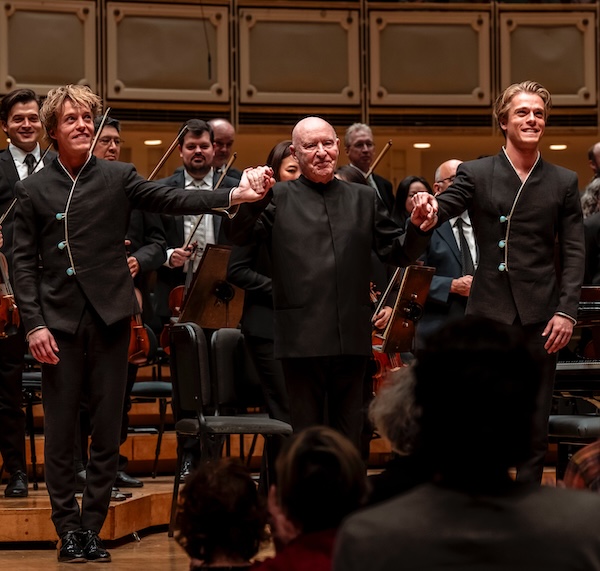
In the Chicago music scene of the 1990s Christoph Eschenbach was often the yang to Daniel Barenboim’s yin.
One would hear the latter conductor’s mercurial, at times meandering, performances with the Chicago Symphony Orchestra during the fall season and then, in the summer, experience fast and tensile CSO concerts under Eschenbach at Ravinia (where he was music director from 1995-2003)
Eschenbach returned to Chicago to lead a Fleisch und Kartoffeln Austro-German program Friday afternoon. (There was no Thursday night concert this week due to Rosh Hashanah.)
Following up on their Chicago bow on the same stage in January, duo-pianists Lucas and Arthur Jussen made their CSO debut in Mozart’s Concerto for Two Pianos.
Mozart wrote the double concerto, K.365, in 1779 as a vehicle for himself and his beloved sister, Nannerl. In lesser composers’ hands, duo keyboard concertos tend to fall into a square and predictable trading off of phrases. Mozart varies the playbook deliciously with subtle and unpredictable curveballs in the duo writing along with a typically rich fount of melody.
The Jussens played with striking polish and facility in the opening Allegro, echoing each other’s phrasing and dynamics, and trading off lines so fluently that without the visual element, one wouldn’t even know when the other pianist had picked up the leading part.
Still, there were slight differences. Lucas Jussen, the elder brother by three years, played the primo part (stage left) with Classical poise and polished restraint; Arthur tackled the secondo role in a more forceful and at times theatrical fashion—often with a head-swinging obbligato—yet was no less musical or idiomatic.
In the Andante, the Dutch siblings’ playing was graceful and simpatico if not quite plumbing the full expressive potential of Mozart’s slow movement. The Jussens were at their finest in the concluding Rondo, throwing off Mozart’s challenges with seamless teamwork and stylish elan. Eschenbach and the CSO musicians lent their keyboard colleagues equally refined and characterful support.
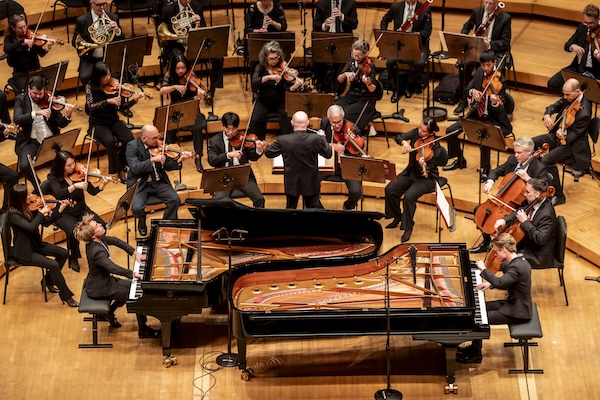
There was clearly an easy musical rapport between Eschenbach and the Jussens, and it was a heartening visual to see the collegial young pianists insist that the 84-year-old conductor join them in their bows, flanked by the brothers.
Repeated curtain calls elicited an encore of Igor Roma’s Strausseinander. This diverting confection for two pianos breezily mixes themes from Johann Strauss Jr.’s operetta Die Fledermaus into a 176-key mashup. The Jussens made the most of the anarchic bravura as well as the bluesy middle section.
The concert led off with “Dreaming by the Fireside,” the second Interlude from Richard Strauss’s Intermezzo. For many, the interludes are more memorable than the vocal sections of this talky opera. Eschenbach drew radiant string playing in this lovely music, building inexorably to a majestic peak and then descending to a serene coda.
Beethoven’s “Pastoral” symphony (No 6) closed the concert.
Eschenbach’s Beethoven in his younger years leaned toward the fast and relentless— a brisk marathon training run through the forest with a close eye on one’s time.
Now, the German conductor’s Sixth breathes a more grazioso spirit. Taken at a relaxed pace, this “Pastoral” allowed listeners to unhurriedly enjoy Beethoven’s day in the country, benefiting the music and the performance.
Eschenbach took an expansive view of the opening movement—all repeats observed—underlining the subtle scoring and harmonic developments in a way that kept one’s attention even in this familiar music. In the ensuing “Scene by the Brook,” the principal woodwinds delivered apt gracious charm not least in the avian cadenza near the end of the movement.
William Welter’s liquid oboe playing illuminated the rustic village musicians in the third movement and Eschenbach led a storm that was imposing and effective without being overly cataclysmic. Perhaps the conductor’s emphatic style missed some of the benedictory glow of the finale but the excellent ensemble playing nicely rounded off this warm and generous Beethoven performance.
The program will be repeated 7:30 p.m. Saturday and 3 p.m. Sunday. cso.org
Posted in Uncategorized
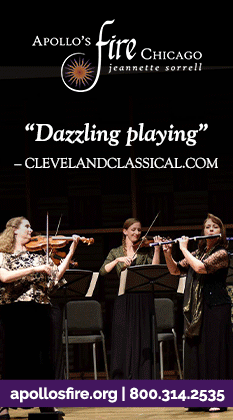
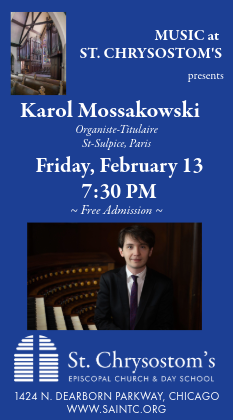
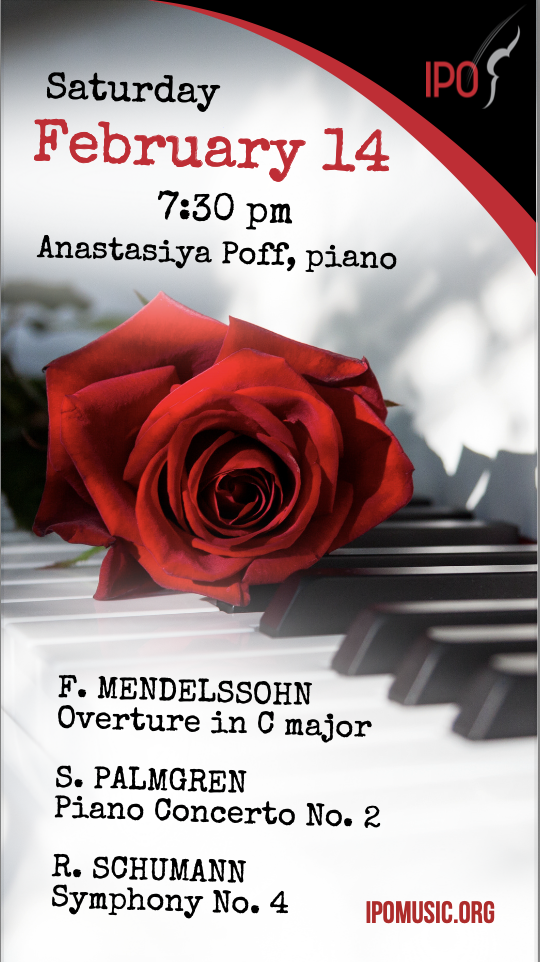
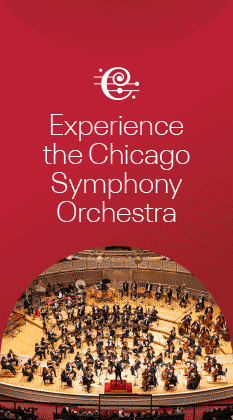
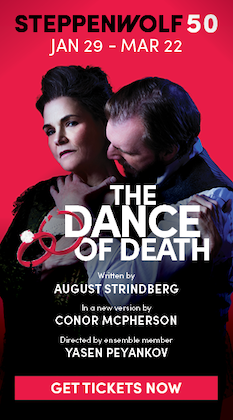
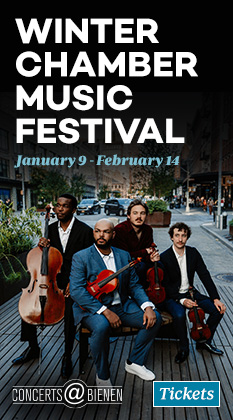
Posted Oct 06, 2024 at 3:14 pm by Mary Goetsch
Is there a name for the particular baton Eschenbach used? I first noticed it in the Beethoven, its being hollow with two parallel sides to it, looked like a double-bass bow having two wooden sides to it (no horsehair). I am not complaining! – just wondered and realized the CSO can play without the maestro beating in the meter. Muti at times would rest from beating time and let the orchestra play on their own, on familiar music.
Posted Oct 06, 2024 at 11:17 pm by Vonnie Lorber
What was the duo piano encore on Sunday October 6? Thank you.
Posted Oct 07, 2024 at 5:27 pm by Ann Raven
I want to say how much I loved the whole afternoon with Maestro Eschenbach, the Jussen brothers and our spectacular orchestra
Thank you,
Ann Raven